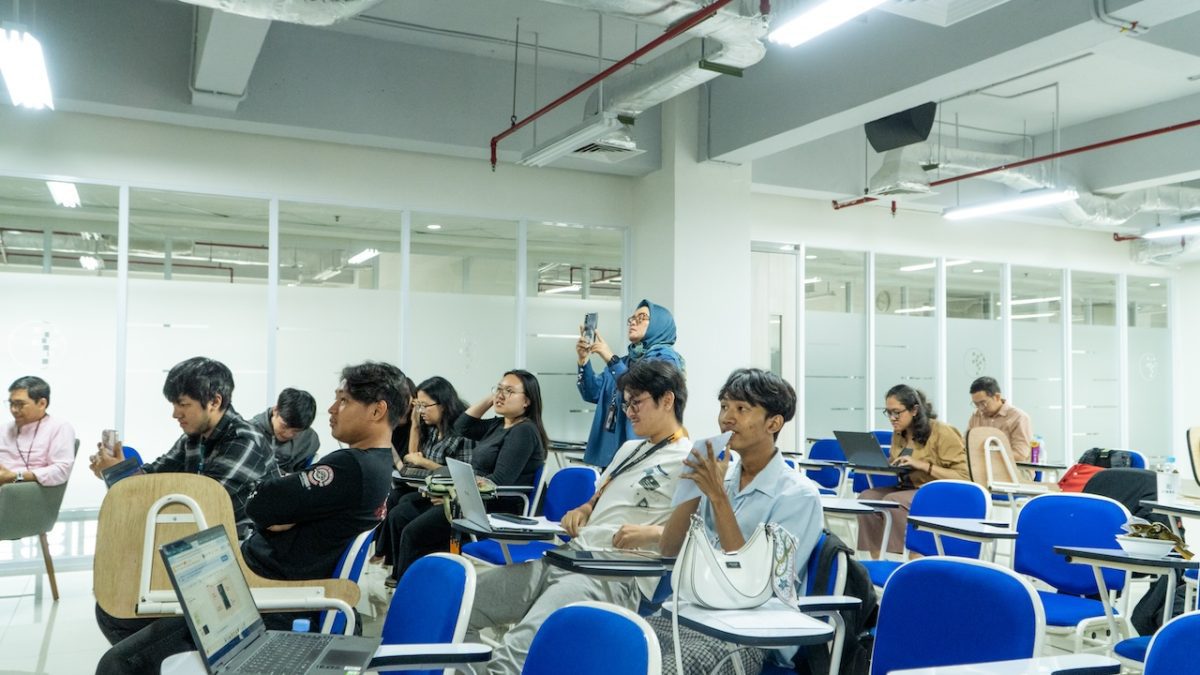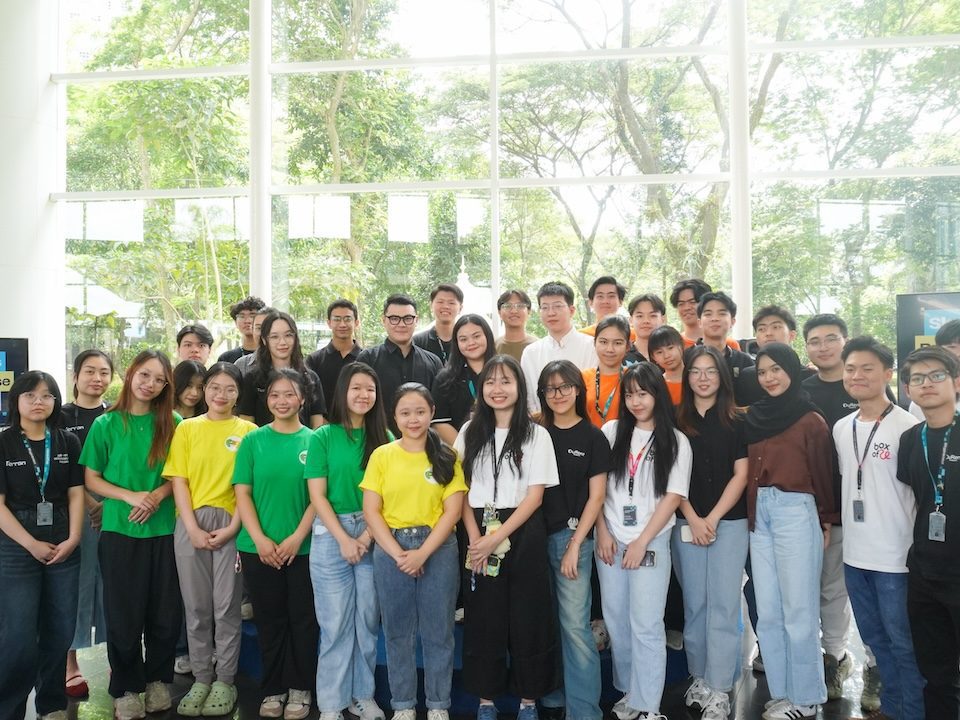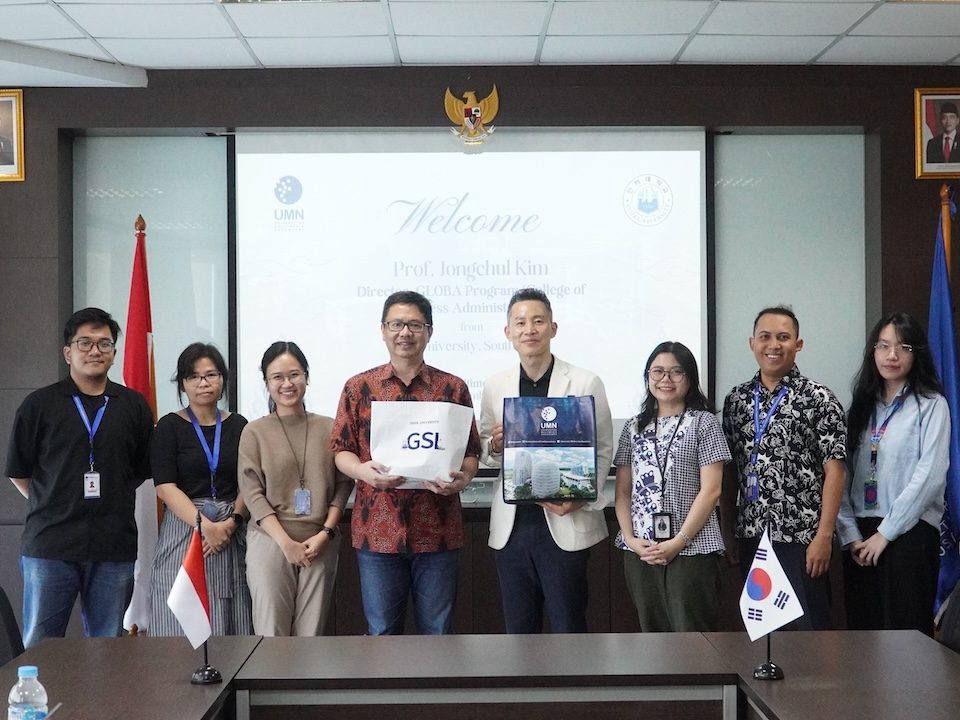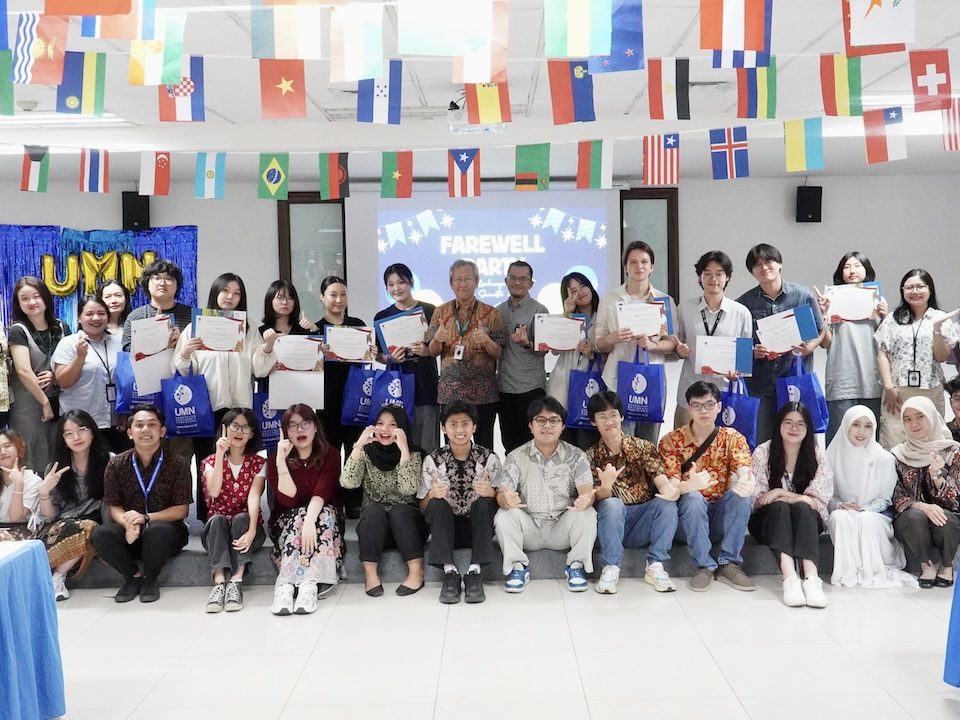
UMN and Wadhwani Foundation Officially Collaborate
June 26, 2025
From Maratua to Korea: UMN Student Film “Adak Engkot” Shakes Up The APEC 2025 Stage
June 30, 2025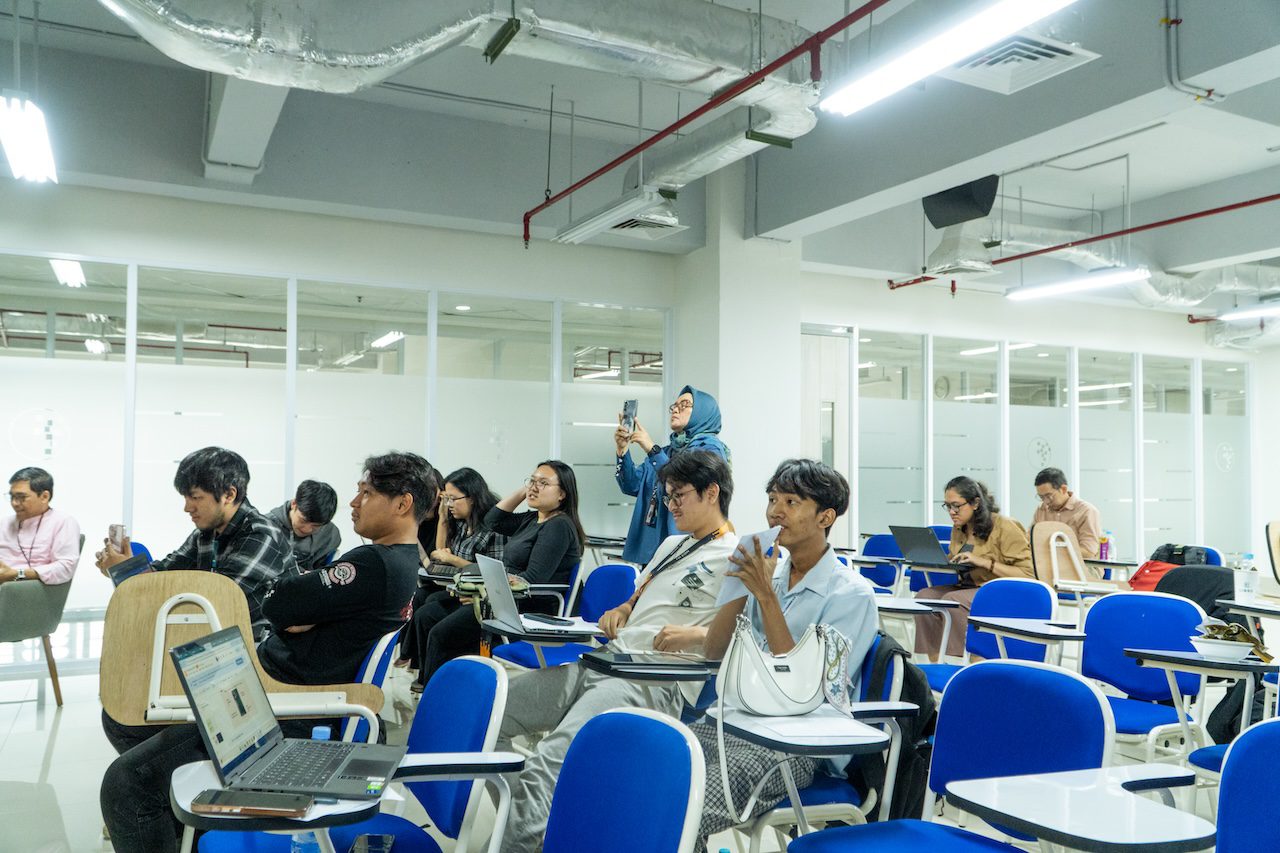
Future Feature Seminar with Strategic Communication students. (Doc. UMN Communications Faculty)
Tangerang – Universitas Multimedia Nusantara (UMN), in collaboration with Love Frankie and Think Policy, recently held the Future Feature program on Saturday, June 14, 2025. The one-day event featured various activities, including a seminar and interactive discussions with students. This edition of the Future Feature program was led by Dr. (Cand.) Hendar Putranto, M.Hum., a lecturer in Communication Ethics at UMN.
In today’s era, technology is advancing, evolving, and becoming increasingly intelligent. One such technology, artificial intelligence (AI), has numerous applications and aids in daily human life. However, it is essential to note that humans must understand AI ethics when using it.
“This material is important, especially considering the widespread use of generative AI today, particularly in higher education for both students and faculty. This material on AI ethics can contribute to AI development with an additional Indonesian perspective,” Hendar said.
In his presentation, Hendar provided an example of AI misuse that violates ethics: deepfake. Deepfake is the misuse of AI by using someone else’s face and context to create deceptive content. Here, Hendar also introduced the term Artificial Intelligence for Social Good (AI4SG) as a guideline for AI use.
“There are several differences between deepfakes and AI4SG. Deepfakes exploit visuals and bodies, have no clear purpose, lack permission, and contribute to viral culture that perpetuates bias or misinformation. On the other hand, AI4SG is the opposite—it is more ethical and contextual, has a clear purpose, and does not violate permissions,” Hendar said.
Hendar also explained why the involvement of AI ethics is important. This is because AI is not just a tool or technology, but a new form of cognition. For Hendar, AI also poses high risks, especially regarding the potential loss of autonomous thinking, so a more participatory ethics framework is needed.
“The ethical use of AI must be under human control, whether it be the designers or the users. We should not become addicted to AI, we should respect diversity, and AI should encourage users to continue thinking critically and contribute to social welfare,” Hendar added.
Hendar hopes that this activity will be beneficial and can be held on a larger scale in the future, so that it can educate diverse communities. It is hoped that the public can reap the important benefits of digital literacy surrounding AI.
By Rachel Tiffany Tanukusuma | UMN News Service
English translation by Levina Chrestella Theodora
Kuliah di Jakarta untuk jurusan program studi Informatika| Sistem Informasi | Teknik Komputer | Teknik Elektro | Teknik Fisika | Akuntansi | Manajemen| Komunikasi Strategis | Jurnalistik | Desain Komunikasi Visual | Film dan Animasi | Arsitektur | D3 Perhotelan , di Universitas Multimedia Nusantara.

